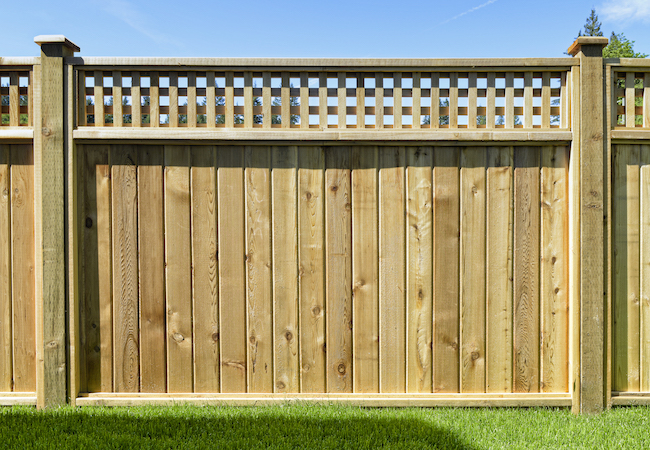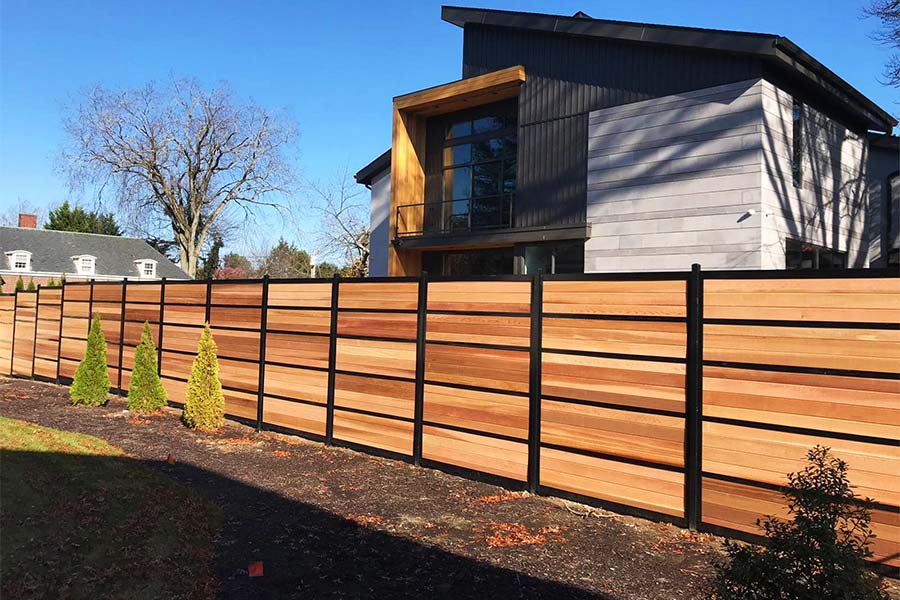All Categories
Featured

Just like any kind of outdoor framework, vinyl fences still need regular cleansing to keep them looking immaculate and to expand their life expectancy. Right here are some of the best methods for cleansing your plastic fencing.
- Normal Dusting and Sweeping. Regular care is important to avoid debris from building up on your vinyl fencing. The simplest means to preserve your fencing is by routinely brushing up or cleaning off any type of dirt, leaves, or other particles that accumulate. Utilize a broom with soft bristles or a blower to eliminate dust and loose materials from the surface area. This will protect against dirt from clearing up right into the grooves and will aid keep the overall sanitation of the fencing.
- Light Soap and Water for Regimen Cleansing. For regular maintenance, a simple soap and water service functions wonders. It's a simple, reliable means to clean your plastic fencing without triggering damages. Right here's how to cleanse your vinyl fencing with soap and water:
Step 1: Mix a light cleaning agent, such as recipe soap, with warm water in a bucket. Go for about 1/4 cup of soap for every gallon of water. Action 2: Dip a soft fabric, sponge, or non-abrasive brush right into the service and gently scrub the surface area of the fence. Focus on dust buildup on corners, sides, and low-lying locations where grime may collect. Step 3: After cleaning up the surface area, wash it completely with a yard tube to eliminate all soap residue. This approach is terrific for light dust and grime and can be done every couple of months to keep the appearance of your fencing.
- Utilize a Power Washing Machine for Stubborn Spots. If you have actually disregarded your plastic fencing for a while, or if it has built-up gunk, mold, or mold, a power washing machine can be an effective device for deep cleansing. However, you need to make use of the correct stress to stay clear of damaging the vinyl. Here's just how to securely power clean your plastic fencing:

Action 1: Set the power washer to a low-pressure setting, preferably around 1,500-2,000 psi. High stress can harm the plastic surface area or create it to crack. Step 2: Stand at the very least 2 feet away from the fence and start splashing from the top down. This helps protect against streaks and makes sure that dust is washed off efficiently. Action 3: Move the power washer nozzle in a side-to-side sweeping activity, and make sure to maintain the water pressure consistent. Step 4: Wash the whole fence completely with water to get rid of dirt and cleaning agent deposit. Power washing is an excellent choice for big fencings or for those with consistent dust and discolorations that soap and water can not get rid of.
- Removing Mold and Mold. In shaded or wet locations, mold and mildew and mold prevail problems for vinyl fences. To combat this, you can use an option of vinegar or bleach to decontaminate and eliminate the development. Right here's exactly how to treat mold and mold on your fence:

Step 1: Mix one mug of white vinegar with a gallon of cozy water. Alternatively, mix 1/4 cup of bleach with a gallon of water. Step 2: Apply the option to the influenced locations utilizing a soft fabric or sponge. Let it rest for about 10-15 mins. Step 3: Rub the areas with a non-abrasive brush to lift the mold and mildew or mildew off the surface area. Step 4: Rinse completely to eliminate any type of cleansing solution and particles. If you choose to make use of bleach, be mindful not to splash it on nearby plants or materials, as it might create damages or discoloration.
- Plastic Fence Cleaners for Challenging Spots. For tough, persistent stains like grease, tar, or pen deposit, you can make use of a specialized plastic fencing cleaner. These items are developed to securely tidy vinyl without causing damage. Be certain to adhere to the product's directions for finest results, and test it on a small, low-profile location of the fence initially.
- Preventing Future Dust and Discolorations. While cleansing is very important, stopping future stains and accumulation can make your maintenance routine a lot easier. Consider these pointers for lasting maintenance:
Trim greenery: Overgrown plants, creeping plants, or hedges can trap dampness against your vinyl fencing, bring about mold and mildew development. Cut close-by plants to guarantee the fencing continues to be completely dry and tidy. Seal fractures and gaps: Evaluate your fence on a regular basis for cracks or voids, and seal any that you discover to keep dust and water from entering the fencing structure. Mount a safety finishing: Some home owners use vinyl-safe protective coatings to their fences. These layers can work as an obstacle versus dust, UV rays, and water, decreasing the regularity of deep cleansing required. 7. Specialist Cleansing. If you're uncertain about cleaning your fencing on your own, or if it needs a deep clean, take into consideration hiring a specialist. Lots of cleansing firms offer fence cleaning company and have the tools and experience to deal with challenging stains without damaging your fence. They can also take care of high or big fences that might be challenging to cleanse by yourself.
Final thought. Vinyl fencings are low-maintenance, but they still need regular like maintain them looking their best. By making use of moderate soap and water for regular cleansing, using a power washing machine for stubborn dust, and dealing with mold or mildew immediately, you can ensure your plastic fence stays beautiful. Regular cleansing, in addition to preventative procedures, will certainly prolong the life of your fencing and keep it improving the appeal and safety and security of your residential property for years to come.
Latest Posts
Explore Oil Changes & More: Complete Auto Care Solutions from Montclare Auto Repair
Published May 29, 25
1 min read
Explore Oil Changes & More: Complete Repair Options from Montclare Auto Repair
Published May 25, 25
1 min read
Check Out Affordable Auto Repairs with Montclare’s Limited-Time Service Specials
Published May 22, 25
1 min read
More
Latest Posts
Explore Oil Changes & More: Complete Auto Care Solutions from Montclare Auto Repair
Published May 29, 25
1 min read
Explore Oil Changes & More: Complete Repair Options from Montclare Auto Repair
Published May 25, 25
1 min read
Check Out Affordable Auto Repairs with Montclare’s Limited-Time Service Specials
Published May 22, 25
1 min read